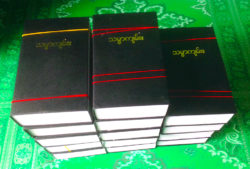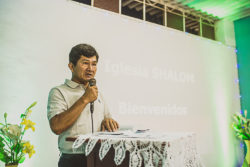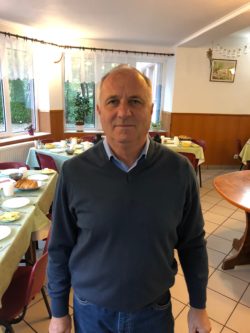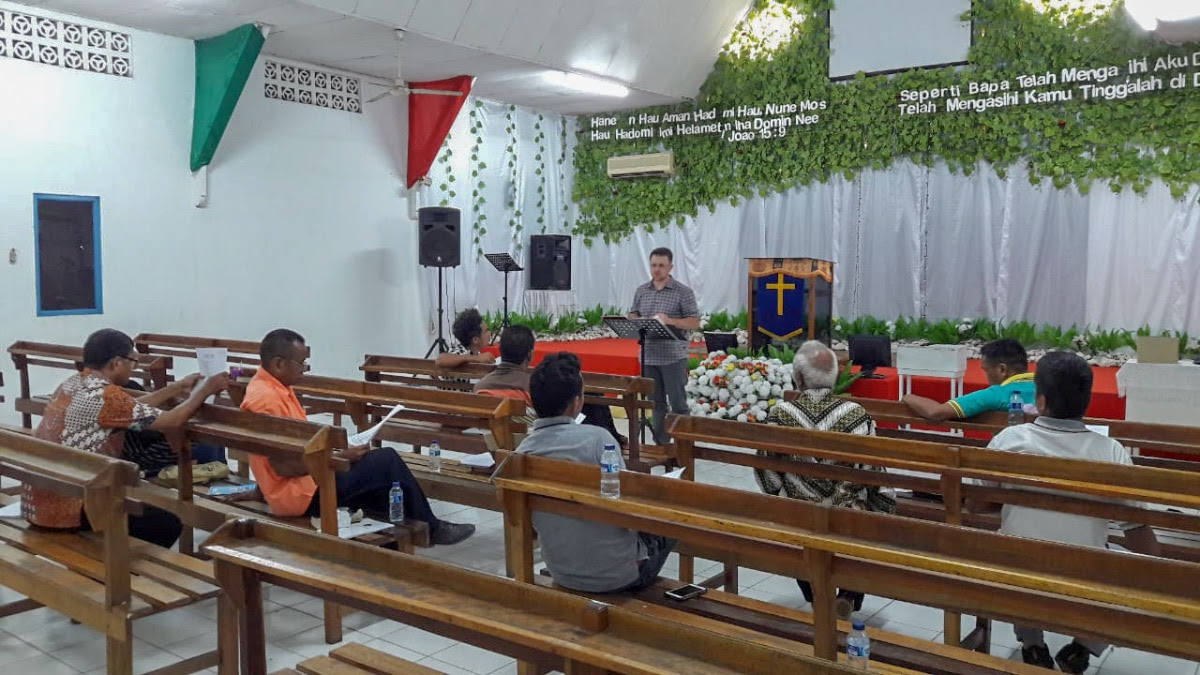
Dear Friends and Family,
Thank you for your prayers while I was away recently in Timor Leste.
The three-day workshop for the Makasae Bible translation went even better than I had anticipated. We spent almost 2 1/2 days studying translation theory to train the team. This was really the first step in training them to become capable Bible translators. I’m planning to do other workshops in the future focusing on other things that weren’t covered in much detail during this workshop (the checking process, for example), as well as go more in depth about how to properly interpret the Bible. In the Fall, some friends who are working on a Bible translation in Sulawesi are also planning to come to Timor Leste to teach the team about creating a dictionary of the Makasae language.
During the workshop we studied the following:
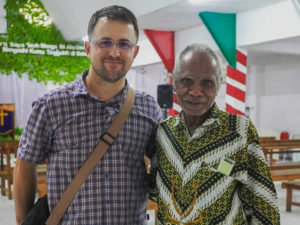
Overview of the Bible translation process from start to finish (forming a team, translating, checking, publishing, and distributing). Specifics of their team (roles on the team, translator qualifications, the most efficient way to do workflow, scheduling, forming smaller teams, confession of faith).
How to translate (what is a translation, why do we translate the Bible, how to aim our translation, qualities of a good translation, form, and meaning, literal translation vs. meaning-based translation, exegesis, step by step translation process, levels of difficulty of each book in the New Testament). (The picture on the right is of Matt and Abrao. Abrao is the oldest member of the translation team. He’s the only one who doesn’t live in Dili, but he lives about 4 hours away in the mountains.)
The last half day (going into the evening past supper time) was spent translating. The team started the Makasae translation by beginning in Matthew 1. The first seventeen verses were translated relatively quickly because the same words and sentence structure is used over and over again in explaining Jesus’ genealogy. Then, the difficulty and tediousness of translating became apparent as the team struggled over the best way to word the next two verses. Their discussion often became lively as they debated with one another. Part of the debate was due to their dialect differences. In the Makasae language, there are three different dialects (all mutually comprehensible). Sometimes a word might be fine to use in one dialect but have negative connotations in another dialect. So, an alternative word would need to be found, or they would agree to put a footnote giving an explanation.
One example helps illustrate the role that culture plays in Bible translation. In Matthew 1:18, many English translations use a euphemism (based on a literal translation of a Greek euphemism) to speak about the time during Mary and Joseph’s betrothal before they had marital relations as husband and wife. These English translations use the phrase,
“before they came together.”
The primary Indonesian Bible uses similar wording but adds clarifying words because the euphemism wouldn’t be clear otherwise. It states, “before they came together as husband and wife.” [The team is translating from Indonesian into Makasae.]
However, after the team translated those words into Makasae in a fairly literal way, it became very clear that it couldn’t be used. The reasons were cultural. Most Makasae people come from a Catholic and animistic background. Their practice related to marriage is first to live together, and only after conceiving a child would they then become husband and wife by getting married in the Catholic church. As a result, “before they came together as husband and wife” gives no indication in Makasae (to the common reader) that Mary was a virgin, thus obscuring Christ’s virgin birth.
Those who advocate a strict meaning-based translation (as opposed to a word for word translation) might be tempted to do away with the euphemism and use a phrase that directly expresses the meaning. That would certainly be the easiest solution, but it would also be offensive to many people. Euphemisms are necessary for a reason. Not only was it considered inappropriate in biblical times to speak straightforward about marital relations, but it remains so today in most cultures throughout the world, including the Makasae culture. So, the team needs to find a euphemistic, indirect way to communicate the same truth. For now, they’ve simply translated it word for word (similar to our English translations), even though its meaning is unclear; they plan to check with their language communities for a better solution.
This is the first step in a long process that will take many years. I’ve heard that on average it takes 12-15 years to finish the New Testament. Please pray that God would continue to strengthen and equip these Makasae translators so that their own people might have God’s word in their own language.
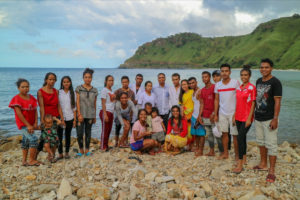
Throughout the week I also had the chance to teach the scriptures several times to the people of Getsemani Baptist Church (HeartCry missionary Francisco’s church) during the evenings. The last day of my visit I got to take part in a baptism service at the beach. I taught about baptism, and Francisco baptized three new believers in the Banda Sea. Praise God for His work in their lives! Pray for this young church. Pray that they will be further established and built up in our common faith.
Blessings in Christ,
Matt
Timothy began working for HeartCry in 2015 and assists with the work in Asia. He is married, has eight children, two sons-in-law, one daughter-in-law, and two grandchildren.
More By Timothy Jotham
